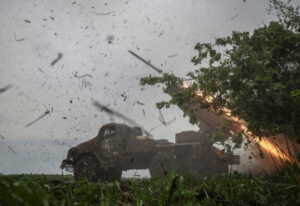News Official Pakistan
Polio or Poliomyelitis or Infantile Paralysis was among the most dreaded children’s illnesses in industrialized nations during the 20th century. These few cases indicate the endemic persistence of polio in three nations of which BMC News Official Pakistan Pakistan is one. The campaign against polio initiated in Pakistan during 1994 noted significant success as the number of reported polio cases within the nation declined from 1155 during 1997 to 28 during 2005. Since then, however, resistance against polio immunization has risen. During 2014 306 polio cases were reported in the nation. While the oral polio vaccine OPV rate of acceptance has continued to improve since 2015, pockets of communities largely ethnically Pashtun remain resistant to OPV.
During 2018 eight of 12 cases of wild poliovirus were reported in the largely Pashtun inhabited province of Khyber Pakhtunkhwa. Following a vaccination campaign in May 2018 the health department documented 26610 cases of polio vaccine refusal during the province. The OPV refusal/hesitancy Latest News Pakistan BMC is just one of the public health issues that affect these communities.
The health infrastructure in Pakistan is fragile and the health sector is burdened by high growth in population, the double burden of communicable and non communicable diseases, and high infant child and maternal mortality. Lives and where the majority of polio cases were recorded in 2018.
The obstacles to vaccination are conspiracy theories regarding the composition and effectiveness of polio vaccine such as rumors that the vaccine is laced with pig fat which Muslims are not allowed to eat. The participation of funded entities in the eradication drive for polio weak governance and inaccessible terrain as a result of the war on terror represent other challenges to OPV acceptance in these nations and local Breaking News Pakistan and international politics suspicion of science and absence of minimum health facilities.
OPV immunity greatly rose among Pashtuns after the killed Osama bin Laden the ex-al Qaeda leader in a military raid in Pakistan. The US allegedly used a pretext of a hepatitis vaccination campaign to track down bin Laden. More than 100 members of the polio vaccination teams and police guards who were guarding them have been murdered since the assassination.
BMC NEWS OFFICIAL
Journalists in Pakistan can Pakistan Headlines Today be classified into three distinct categories those employed in large cities such as Karachi Lahore, and Islamabad which are hubs for the large media groups those employed in provincial capitals and bureau offices such as Peshawar and Quetta and those employed at the district level. Journalists working in the biggest cities of the nation are better educated and well trained while journalists at the district level are least educated and trained.
Journalists who work for the headquarters and bureau offices in the capitals cover only one organization and typically are assigned to report on politics crime entertainment education and health while journalists who Daily News Pakistan work at district levels small towns are intended to cover all of the significant news in their communities. Health reporting is a forgotten reporting area across the country.
Discussion
Full disclosure and SDM has Trending News in Pakistan replaced the paternalism model of patient doctor relationship in the West. But yet the transition from paternalism to patient autonomy has not occurred in many developing countries. To add fuel to the fire family intervention in disclosing bad news to patients is also very common in developing countries including Pakistan thus hindering patient autonomy. Lack of information among relatives about cancer has been quoted as one prime reason for their insistence that information about diagnosis should not News Update be given to the patients.
Other reasons are BMC News cultural barriers attitude of the physicians and inadequate formal training to physicians. This physicians’ and relatives’ attitude is contrary to patient desires a huge majority of whom as per available literature desire full disclosure.
In a Pakistani study on patients’ perceptions and expectations towards BBN 40% of the patients held the opinion that they wanted full disclosure and this was the basic right of patients.22 Even the children who were provided with pertinent information regarding their diagnosis and treatment plan at the beginning of treatment manifested less severity of anxiety and depression.23 Thus it is imperative that all doctors must Breaking News BMC be willing to break bad news to those patients who would like to receive all the information.
Design Setting
The study was a cross sectional one over a duration of 1 year from the month of January 2016 till June 2017 in 15 hospitals/ Latest BMC News Updates, BMC News Headlines, Daily News BMC Official, BMC Urdu News, BMC Breaking News Today, medical institutions in all four provinces of Pakistan.
Sample size and selection
Every physician who had completed their MBBS and was working in the selected institutes and provided consent was approached by nonprobability convenience sampling until the last sample size was achieved. The questionnaire was tested on 5% of the estimated sample size. This research intended to measure physicians knowledge practices and barriers regarding breaking bad news. This as per the investigators BMC International News knowledge has not been seen in any multicenter large scale research carried out in Pakistan hence we assumed that the practice and knowledge levels on breaking bad news would be 50% also it would give maximum variance with an error bound of 4%.
A level of significance of 1% a sample size of minimum 1037 subjects was calculated. In order to cover refusals and missing questionnaires of 10% a final sample size of about 1136 doctors was estimated. The sample size was Entertainment News BMC stretched based on the number of the doctors in the respective hospitals and proportions were allocated so that 30% of the sample size was recruited from Punjab and Sindh whereas 15% of.
Data collection
A pre prepared semi structured questionnaire with dichotomous and qualitative questions including demographic information questions about knowledge attitudes practices and barriers in revealing bad news and previous training BMC Business & Economy News in revealing bad news was given to physicians meeting the inclusion criteria based on the sampling plan. Participating physicians were explained the self completed questionnaire by specially trained data collectors and even later they retrieved the filled questionnaires. The questionnaire was about 15 20 minutes in completion.
Comparison of doctors
Comparing the doctors of four BMC Trending Videos provinces when perception of disease conditions as bad news was compared it was found that there was a statistically significant difference for most conditions. 90% doctors in Punjab and Baluchistan perceived amputation of limb as bad news while in Sindh 75% doctors and in KPK only 60% perceived it as bad news. Being blind was viewed by 91.3% physicians in Baluchistan as bad news while in Punjab, 87.2% in Sindh 73.4% and in KPK only 68.5% physicians viewed it as bad news. This difference also came out to be statistically significant.
The news of cancer was viewed as bad news by 96.7% physicians in Baluchistan 96.1% physicians in Punjab and 91.2% physicians in Sindh but in KPK 84% physicians viewed it as bad news. 82.7% of doctors in KPK found Hepatitis A and E as bad news while 38.9% of doctors in Baluchistan 37.3% of doctors in Sindh and Digital News Pakistan BMC 36.6% of doctors in Punjab found it as bad news. 83% doctors in Punjab and 79% doctors in Baluchistan thought infertility as bad news while in Sindh and KPK 69% and 68% doctors thought it as bad news respectively.
HIV/AIDS news was viewed by 96.7% Baluchistan doctors as bad news while in Sindh and Punjab 89.2% and 84.8% doctors respectively but only 57.4% doctors viewed it as bad news from KPK. When doctors opinion regarding getting bad news was compared between provinces it was observed that 92.9% doctors in Sindh 88.5% doctors in Baluchistan and 84.5% doctors in Punjab replied that if they were diagnosed with dangerous life-threatening illnesses they would like to be told the diagnosis whereas in KPK only 62.3% doctors replied that.
In terms of practices it was seen that 74.3% KPK doctors arrange a special appointment for this purpose while in Sindh Baluchistan and Punjab only 62.2%, 52% and 48.5% doctors arrange respectively. 85.7% and 80.4% doctors of Punjab and Sindh respectively informed that they spend more time than usual while BMC News Lahore, BMC News Karachi, BMC News Islamabad, BMC News Punjab, BMC News Sindh, 74.5% and 63.3% doctors of Baluchistan and KPK informed respectively. 87.8% Punjab doctors reported that they examine for patients understanding and in Sindh and Baluchistan 78% of doctors do so and in KPK 67.8% of them do it.
92.2% Baluchistan doctors provide follow up appointment to such patients but in Punjab Sindh and KPK 85.7% 63.9% and 40.2% doctors do it respectively. 24.5% physicians from Baluchistan graded the difficulty level of delivering bad news on a 0-6 scale with 6 being the most difficult whereas 14.8% 9.7% and 6.4% physicians from Punjab KPK and Sindh respectively graded it on.
Discussion
This is the inaugural multicenter BMC News Balochistan large scale research examining doctors perceptions and knowledge regarding bad news and views about different aspects in relation to its revelation to patients as well as family members in Pakistan. Practices of doctors while delivering bad news following suggested guidelines of breaking bad news were surveyed. The findings are representative because this was a multicenter study and data were collected in both government and private teaching #News Paper and nonteaching hospitals in all four provinces of Pakistan.
All the provincial capitals and physicians practicing in six major cities of Pakistan are covered. Physicians from multiple medical and surgical specialties were surveyed. General Medicine General Surgery, Pediatrics and Obstetrics and Genecology are overrepresented as they possess the highest number of practicing physicians. The results indicate enormous variation in individual views of each of the diagnoses perceived as bad news by the respondent doctors. More than 80% of them across specialties viewed life #BMCNewsPakistan threatening diagnoses as akin to bad news while fewer than 50% felt malaria and typhoid as bad news.
Conclusion
Training of #BMCBreakingNews communications skills with emphasis on BBN should be made a mandatory part of medical education with regular refresher courses for postgraduates. Pashtun health journalists can be valuable allies of national polio eradication efforts. They must be given culturally appropriate training in local languages at the right literacy levels. We also propose active participation of journalists in community mobilization. Participants gave strong endorsement of OPV and encouraged children in their respective families and communities to #TrendingNews be vaccinated against polio. Simultaneously, they believed that their communities had more pressing health needs that were not #news today being met by the government.




